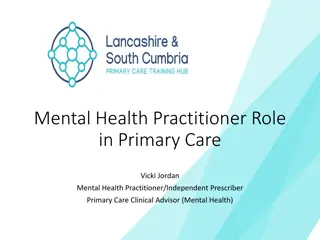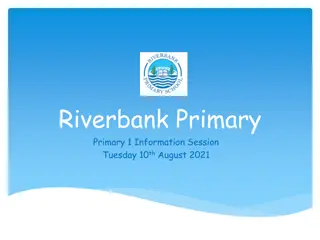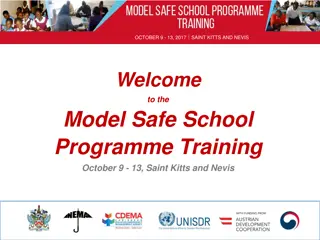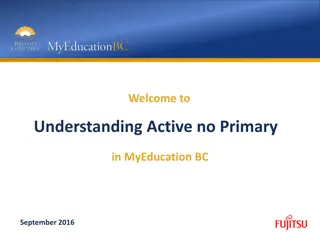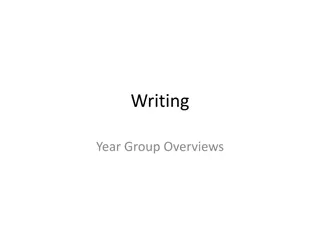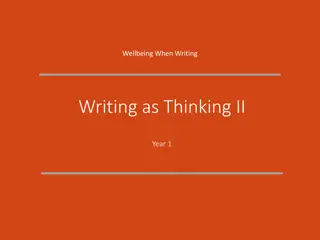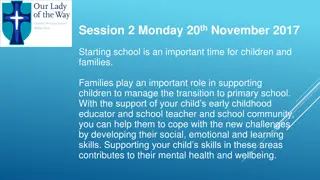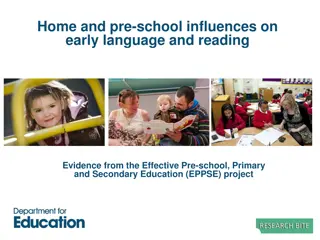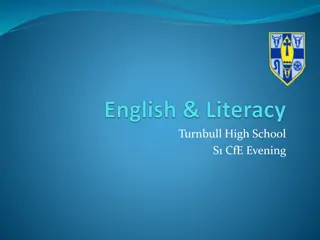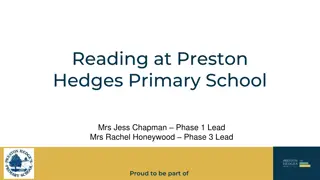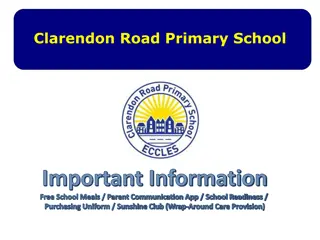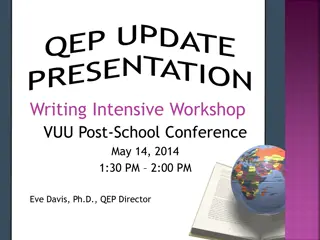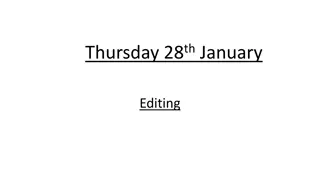Enhancing Writing Skills at Pucklechurch C of E Primary School
At Pucklechurch C of E Primary School, a strong focus is placed on teaching writing fundamentals and fostering an authorial voice across the curriculum. The school shares its successes, writing foci, and strategies for nurturing successful writers, including the use of high-quality texts, exposure to varied vocabulary, and expectations of progressive non-negotiables. Students engage in activities to enhance spelling, editing, and revising skills, with an emphasis on language, oracy, and genre features.
Download Presentation

Please find below an Image/Link to download the presentation.
The content on the website is provided AS IS for your information and personal use only. It may not be sold, licensed, or shared on other websites without obtaining consent from the author. Download presentation by click this link. If you encounter any issues during the download, it is possible that the publisher has removed the file from their server.
E N D
Presentation Transcript
At Pucklechurch C of E Primary School, we believe that children should be taught the fundamentals of writing and then, with these secure, move onto crafting and manipulating sentences that express an authorial voice; this should not only be within the realms of English lessons, but throughout the curriculum.
Aims of this morning: Share our whole school successes in writing. Share our writing foci. What does writing look like across the school?
Whole School Writing Successes: National: 72% EYFS: 86% children achieved Writing ELG National: 82% Year 1: 89% children met Y1 Phonics standard End of KS1: 82% children achieved the Expected Standard and 38% achieved the Greater Depth Standard National: EXS 69% GD 15% End of KS2: 86% children achieved the Expected Standard and 36% achieved the Greater Depth Standard National: EXS 78% GD 20%
What helps our children become successful writers? The use of high quality texts or stimuli that link to our theme Exposure to a wide range of vocabulary and texts The use of progressive Non-negotiables Our consistent expectations Application of skills in the wider curriculum as well as writing sessions Being outward facing- close work within our cluster of schools
Whole School Writing Foci: Children are using their writing skills in the wider curriculum Children are able to use editing and revising skills to improve their first draft Improve the level of spelling attainment within all year groups Whole class reading activities allow children to learn the organisational and language features of genres that feed into their writing The focus on language and rehearsal of oracy which allows children to practise sentences before writing them
Non-negotiables: What are they? What do they look like? What are the key ones for EYFS, KS1, KS2? Why are they used?
What are our focuses in writing?
Vocabulary gathering - Explore the vocabulary in a text - Never heard word grids - Cloze activities - Sorting/clumping activities
Boxing up - - - - - - Dissecting a story/ text and thinking about the key parts Characters Setting Problem Solution Ending
Exploration of a character or setting Freeze frames Hot seating Conscious ally
Character/ setting descriptions - - - Applying phonics and spellings Applying punctuation and grammar Year group non-negotiables such as suffixes, expanded noun phrases Use of oral rehearsal and key vocabulary -
Plan/ draft/ edit/ publish Plan Draft and edit Pubish
How to help your child: Weekly spellings allow children to use and apply the spelling rules Exposure of vocabulary through reading will allow children to magpie words that they can use in their own writing







